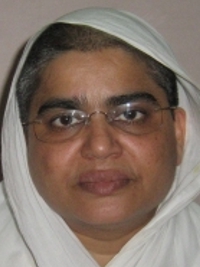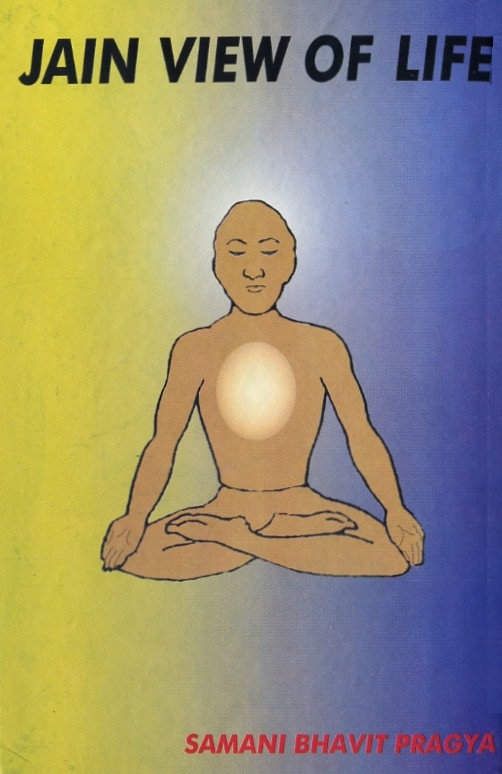Science of Living
India, in days of yore, had always been the abode of spirituality. It has been a land of saints, seers, and sages, of knowledge and wisdom. It is a pious land that gives an imprint of spiritual culture. Great souls have made the country spiritually strong. The country presupposes real education, which means the development of an integrated personality.
Education from conception
Education starts from the mother's womb. Even whilst a child is in the womb it absorbs the influences of the mother and also of the environment surrounding it. Once a lady asked Tolstoy "I would like to educate my son, what would be the correct time for him to start?" Tolstoy questioned, "How old is he?" The lady answered, "He is five." Tolstoy said that she was already five years late. The right time to educate would have been the day she had conceived.
Learning from unconscious imitation
Education is not just what is taught in school. True education is what a child learns from its parents, family and surroundings. The upbringing of the child is more dependent on the mother rather than the teacher. The mother has a very responsible role in the education of her children. Also equally important is the role of women teachers at kindergarten and nursery schools. Women have a natural ability to train children as compared to men. The mother is the child's first guru. She is naturally equipped for the role of bringing up a child. Her heart is full of love and gentleness for the child who in turn opens her heart to her child. The child openly accepts what is given by the mother and it assimilates her lessons. Thus various qualities are cultivated in child, and through unconscious imitation, behaviour and conduct the child learns a lot. Heart to heart lessons are deeply embedded into the very being of the child. A woman has the ability to win a child's heart if she treats the child as her own.
A mother's lullaby should be soul elevating, divine, infusing healthy ideas of forbearance, friendliness, good character etc. The powerful, vigorous and divine thoughts are bound to exercise a profound influence on the child's future career, mental make up and building of its personality. The habits and thoughts formed in childhood remain embedded in the child's mind for life. A childhood with the right type of training and guidance would normally create an invaluable asset for the family and a decent citizen for society.
Right upbringing of youth
The most precious period of life is a person's youth. The youth of a country are its future citizens. They will be the ones to forge the hopes of the forthcoming generations. They will be the ones to guide the nation into the future and take their country to new heights of glory. The period of youth therefore is extremely important and is the time for laying down the foundation of a person’s character, personality and behaviour. This is the period in which a person makes or mars his future. This time in one's life certainly must not be frittered away irresponsibly or drawn into the wrong direction. The moulding of one's nature, development of personality and character take place in this period. It is essential that students must strive to develop their faculties of discrimination, to be able to discern what is true and worthy of learning and knowing and what is untrue and not worth striving for. An intense feeling within must grow, the desire to cultivate worthy and important values of life. Right character too, has to be developed through education, ideals and by learning from appropriate examples.
Environmental influence on child's personality
As in the home, parents exert influence upon the child's personality, so also the child's teachers exert an unmistakable influence upon the students. A student uses books to learn and teachers help in the practical understanding of the material offered in the books. A student is not merely a brain to be stuffed with a plethora of facts, figures and statistical information. Each student has the profound capacity to think, to know, to feel, choose and act. The educational institutions are there to increase the individual’s capacity and abilities, and whilst doing so to make sure that it is on the right lines. Education is the tool which effectively moulds and equips the students of today for the tasks of tomorrow.
Modern educational system
In the world today we have many educated people, graduates in various conventional courses, but who are unable to cope with the mental and emotional stress which life throws up at them. There are people who are even more highly educated but, when required do not have patience and the power to maintain a mental equilibrium. Sometimes
it seems that many students finish their career in gloom, sorrow or even despair. The intellect is there but they have not been able to lay out a clear cut program, i.e., they have no definite aim in life. This problem therefore must be dealt with through the education system of schools, colleges and universities. Not only practical education must be taught but also, side by side, the harmonious development of a students head, heart and hand.
Incompetence of mental and emotional equilibrium
Regarding the problems of students the Late Ganadhipati Gurudev Tulsi and Acharya Mahapragya considered the present education system, its various successive stages and methodology. After considerable thought they came to the conclusion that although there are considerable benefits of the modern educational system it is still incomplete, particularly that the system is devoid of substantial culture.
Of course, on an intellectual level the system of education is producing scientists, doctors, lawyers, engineers, professors etc., who are well versed in their respective fields. Creating intellect is a part of the education process but that is not all that education should be. Intellect has to be supplemented with a sense of social responsibility, humanistic values and particularly sound character. Mere intellectuality can prove to be very dangerous. Today there is a glut of intellectuals devoid of character and therefore having a lop-sided personality. This is because educational centers "are imparting merely vocational and technological training and only a few of these centers teach some aspects of yoga. That is why the present system of education fails to provide any form of education for the development of emotional and mental strengths of its students. It is required that education system must deal with the development of all the four dimensions of a person's personality i.e., physical, intellectual, mental and emotional dimensions in a balanced manner. An all-round harmonious development of the entire human personality is essential and that is what the aim of the educationalists should be. However at the present time, modern education only lays emphasis on the first two dimensions and the other two, the mental and emotional considerations, are neglected.
Modern educational system v/s Gurukul
Ganadhipati Gurudev Tulsi and Acharya Mahapragya have thought very deeply about whether the present system of education is on the right lines and whether it is successful in giving the right direction to life. Does modern education effectively equip students for their responsible roles later on in life? Does the curriculum of the present educational system fulfill the most indispensable needs of mankind? They were of the view that educational institutions should be modelled on the basis of the ancient Gurukul system but suited to modern conditions. A Gurukul was like a small township of its own, where students came and stayed and learnt not only knowledge of various subjects but also about many practical aspects of life. They had to develop all dimensions of their being and particularly those aspects which gave them qualities of leadership, noble virtues, and right thinking.
Science of living
Looking at the Gurukul system and the systems of education today, His Holiness Gurudev Tulsi and Acharya Mahapragya conceived a system called the Science of Living. It is a training course based on scientific principles.
It comprises of various branches of learning drawn from modern science as well as the ancient sciences. The topics covered under modern science are also included in science of living such as anatomy, physiology, endocrinology, ecology etc. and the ancient sciences just like philosophy, value-education, yoga, meditation etc. Theoretical and Practical training is contained in the syllabus of Jeevan Vigyan. Thus it is a holistic system in itself.
 Samani Bhavit Pragya
Samani Bhavit Pragya
